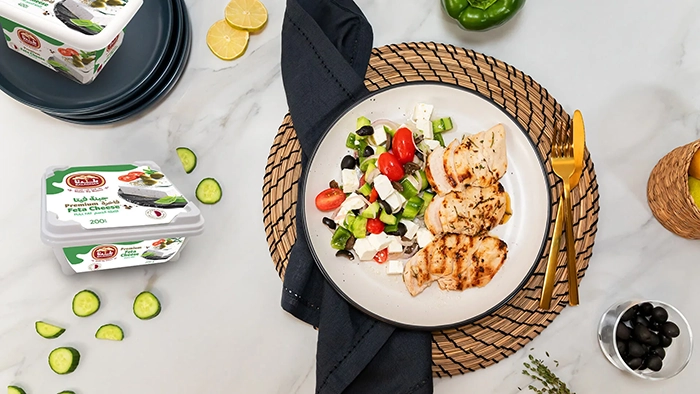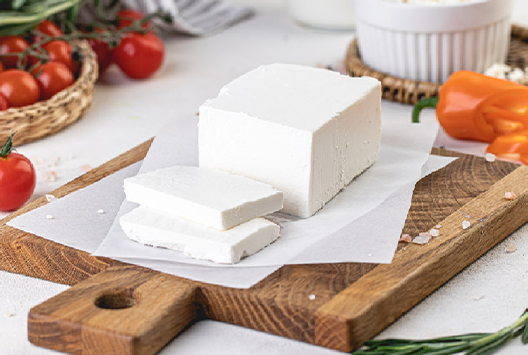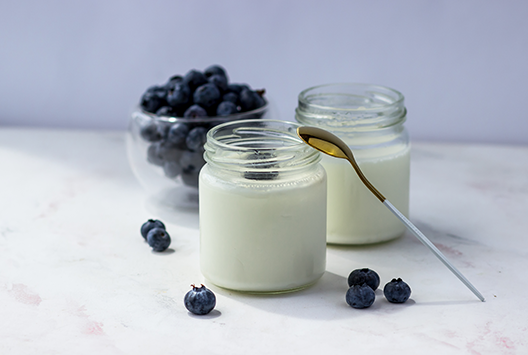
All You Need to Know About Feta: Ways to Eat & Store It
Cheese is a versatile and beloved food enjoyed in many cuisines worldwide. It can be used in various dishes, such as sandwiches or grated over pasta, or eaten alone with crackers. Still, not all cheeses are created equal, and feta cheese is a prime example!
Feta cheese hails from Greece and is a crumbly, salty cheese made from sheep's milk or a combination of sheep's and goat's milk. With its unique tangy taste, it is a popular ingredient in Mediterranean cuisine, where it's often paired with olives, cucumbers, tomatoes, and other vegetables.
Unlike other cheeses, feta cheese requires specific handling and storage to maintain its distinctive flavor and texture. Unfortunately, few people know how to properly store and serve feta cheese, so we're here to help.
How Feta Cheese Is Made
Feta cheese is a unique and beloved cheese that originates from Greece. It's made by combining sheep's or goat's milk with rennet and salt. The rennet enzyme helps solidify the milk, forming a curd, which is then cut into small pieces and left to drain. After that, the cheese is placed in a brine solution that preserves it and gives it its signature salty taste.
Typically, feta cheese is ready to be eaten after a few days, but some varieties are aged for several months. Aging gives the cheese a firmer texture and a more complex flavor. During this time, the cheese is stored in a brine solution and regularly turned to ensure even distribution of flavors.
Storing Feta Cheese
For maximum freshness; Feta cheese should be stored in the fridge in an airtight container, with the brine being changed every few days. If you're not going to eat it within a few days, put it in the freezer for longer-term storage, where it can last for up to 6 months. This also goes for cooked feta dishes, like pasta or salads, which will stay good for up to 5 days.
Pairing Feta with Food
Feta cheese is a versatile ingredient that can improve many recipes' flavors. It can be included in many dishes, including salads, sandwiches, and wraps. Also, it goes well with veggies like onions, cucumbers, and tomatoes. Feta mixes superbly with ricotta and mozzarella, among other cheeses. Although feta's sour flavor may not be the best complement for fruit, watermelon, cantaloupe, and honeydew pair nicely with it. Furthermore, feta goes well with many sauces and can be added as a topping to pizza or spaghetti.
Things to Avoid When Serving Feta
When serving feta cheese, there are certain things you should never do. These include:
1. Serve Spoiled Feta
Serving rotten feta cheese is a major no-no, which should go without saying. Feta cheese needs to be kept in brine to stay fresh and prevent rotting. It will spoil and need to be thrown away if kept out of the fridge for an extended period of time. Make sure you only provide the freshest feta cheese to satisfy your guests' taste buds.
2. Cut Feta with Your Hands
It is advised to use a knife rather than your hands to cut or cube the feta cheese to reduce any potential danger of bacterial contamination. This straightforward advice will guarantee accurate portioning and assist in preserving the cheese's quality and freshness.
3. Avoid Serving Feta at the End of the Meal
Feta cheese etiquette dictates that it should not be served at the end of the meal. Feta is a strong-flavored cheese, and its taste can be overpowering if served after other dishes. Because of this, it should be served alongside other dishes or as an appetizer.
Is your feta knowledge betta now?
Feta is a delicious cheese that can be enjoyed in a variety of different ways. While typically served as an appetizer, it can also be eaten with other dishes. When eating feta, one must be mindful of feta cheese etiquette to enjoy it to the fullest.
If you’re looking for the best feta cheese, Baladna has what you need! We offer selections made with the finest quality ingredients, all for affordable prices. Visit our website today and take your pick!







